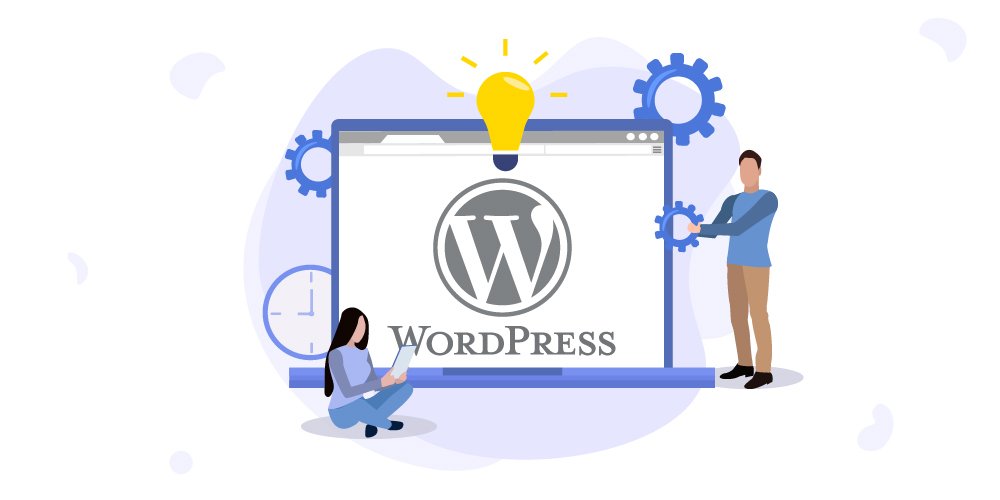What is WordPress? If you’ve ever heard anyone talk about building a website, there’s a good chance you’ve heard of WordPress. Originally launched in 2003, WordPress has since become the most popular CMS in the world, powering over 60 million websites today.
WordPress is a powerful and versatile content management system (CMS) that has evolved from a simple blogging platform to a robust tool for creating and managing a wide range of websites. Launched in 2003, WordPress has become one of the most popular CMS options globally, powering millions of websites, ranging from personal blogs to e-commerce platforms and corporate websites. Its success can be attributed to its user-friendly interface, extensive customization options, and a large ecosystem of plugins and themes. Let’s delve into what WordPress is and explore its various uses.
A Comprehensive Overview
1.Core Functionality:
Content Creation:
- At its core, WordPress simplifies content creation. Users can write and publish articles, add images, and embed multimedia content with ease. The intuitive WYSIWYG (What You See Is What You Get) editor makes it accessible for users of all technical levels.
Page Management:
- WordPress extends beyond blogging to serve as a full-fledged CMS. It allows users to create static pages, making it suitable for a diverse range of websites, including portfolios, business sites, and informational pages.

2. Customization and Themes:
- Themes:
- WordPress offers a plethora of themes—pre-designed templates that determine the look and feel of a website. Users can choose from a vast library of free and premium themes, enabling them to tailor their site’s aesthetics to match their brand or personal style.
- Customization:
- Beyond themes, WordPress provides extensive customization options. Users can modify colors, fonts, layouts, and more without needing advanced coding knowledge. This flexibility ensures that each WordPress site is unique, reflecting the individuality of its owner.
3. Plugins and Functionality:
- Plugins:
- One of the defining features of WordPress is its extensive plugin architecture. Plugins are additional pieces of software that can be integrated into a WordPress site to enhance functionality. Whether it’s SEO optimization, e-commerce capabilities, or social media integration, there’s likely a plugin for it.
- E-commerce:
- WordPress is a popular choice for e-commerce websites. Plugins like WooCommerce empower users to create fully functional online stores, complete with product listings, shopping carts, and secure payment gateways.

4. User Management:
- User Roles:
- WordPress provides a sophisticated user management system with different roles and permissions. Site owners can assign roles such as administrator, editor, author, and subscriber, controlling access to various features and content creation capabilities.
5. SEO-Friendly:
- SEO Optimization:
- It is inherently designed to be search engine-friendly. Its clean code structure, coupled with numerous SEO plugins like Yoast SEO, enables users to optimize their content for search engines, improving visibility and rankings.
6. Community and Support:
- Community Support:
- With a vast and active community, WordPress users benefit from a wealth of forums, tutorials, and documentation. The community-driven nature ensures that troubleshooting is often just a search away, fostering a collaborative environment.
7. Scalability:
- Scalability:
- Whether you’re starting with a simple blog or a complex corporate website, WordPress scales seamlessly. Its scalability is exemplified by the fact that it powers websites ranging from small personal blogs to major news outlets and Fortune 500 companies.
What Websites Can WordPress Make?
Hobby or Lifestyle Blogs
Due to origin in the blog space, its features for this purpose are rich, including:
- The ability to differentiate between posts and pages
- A robust WYSIWYG editor for easy post creation
- Posts, tags, and categories for creating a rich content organization system
- Options for users to leave comments and you to easily moderate them
Once you have installed, the main thing you’ll want to do is choose a theme that appeals to you and what you want to accomplish with your blog. There are themes that accommodate news, magazine, and tiled layouts (and more).
Next, you’ll want to add plugins for any functionality you want that doesn’t come with the theme, such as social sharing buttons or click-to-tweet.

Professional Portfolios
You can also find a variety of themes for professional portfolios, making WordPress a great choice for showcasing your personal brand. The “Pages” functionality can be used for your homepage, About page, contact page, etc. while the “Posts” functionality can be used for the specific pieces you want to highlight — whether they’re in image, text, audio, or video format.
You can choose a theme with a built-in gallery, or you can install plugins for portfolio carousels or sliders.
Business Websites
A business website needs to get even more mileage out of WordPress, in many cases having more pages and posts than the average personal blog or site and needing additional functionality. However, due to its powerful built-in CMS capabilities and the open-source community continuing to iterate solutions, WordPress is fantastic at meeting those needs.
You can choose a website theme that works best for what you’re looking to accomplish and then customize it according to your brand. Page builders such as Elementor and Divi make the layout process even easier.
With plugins for SEO, lead capture, analytics, and more, you’ll be able to integrate and grow your business using WordPress.
E-Commerce Stores
WordPress is particularly good for creating online stores. With e-commerce plugins such as WooCommerce, you can manage products, payments, and shipping in the back end while your visitors have an enjoyable shopping experience on the front end.
Mobile Applications
It can be far more convenient for some users to access your site’s features through a mobile app rather than their device’s browser. App development can be costly, but WordPress plugins can turn your site into an app with no hassle.

